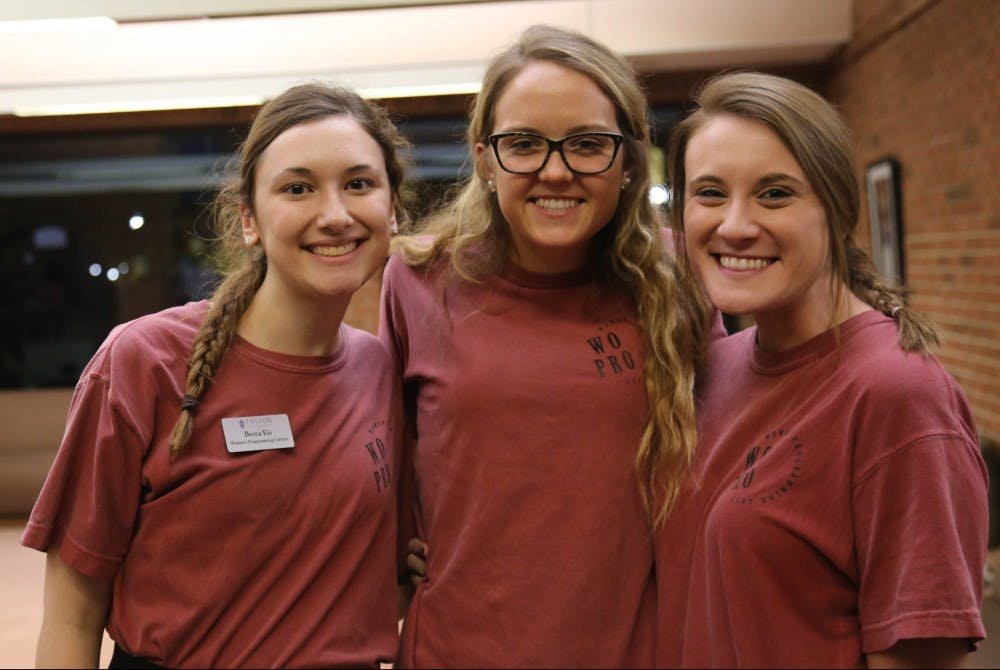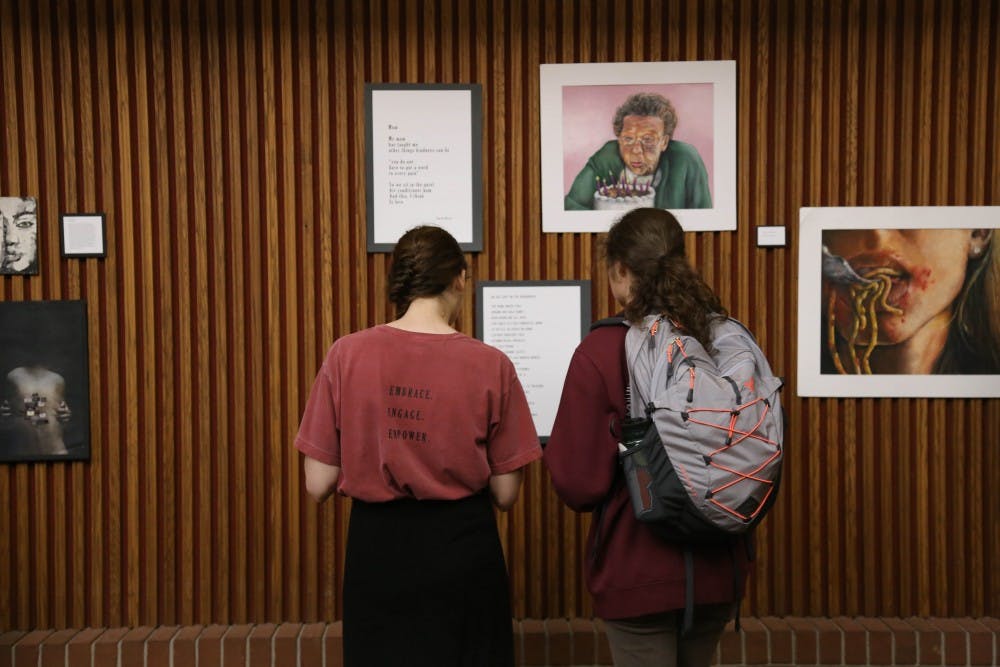By Abigail Roberts | Echo
It is not everyday you walk through the Zondervan hallway and come face to face with a powerful display of artwork exploring themes of womanhood.
Two weeks ago Women's Programming (WoPro) opened with their first event of the year, a Conversation Sparking Art Show.
Throughout history, women have fought to find platforms to stand on, ways in which to make their voices heard. Art is one such powerful platform.
In this particular display, the wide scope of the pieces range from a song, "Stay" by senior Emily Sumney, to photography, like "One Perspective" by junior Abigail Roth, to poetry, like "Women Don't Have Hair" by senior Mary Anleitner to drawings like "storied lines" by senior Izzy Spitz.

The display is meant to portray the expressions and importance of womanhood today and throughout history.
"I have been struck by the variety, and how much stronger the pieces are together," said WoPro cabinet member, junior, Nicki Mortland. "It shows the commonalities of being a woman, which is something we need to recognize and celebrate."
After brainstorming together at the beginning of the year WoPro decided on the idea. Many of the cabinet members are artists themselves, so the idea fit well.
By placing the display in a high-traffic area, the cabinet hopes those who are interested can engage and interact with the pieces, hopefully in the end sparking insightful conversations.

Here are a few of the many works:

"Gussied Up," by junior Chrysa Keenon
Q: Where did the idea for this piece come from?
A: "This summer I was kind of dating a guy, and whenever I would wear a dress he would act impressed and tell me I looked beautiful. I kept wanting to say, 'I'm not wearing this for you, I'm wearing this for me.' (So) this piece came from an expression of how women have to be dressed up to be taken seriously."

"Unlabeled," by freshman Clarisa Paschall
Q: Where did the idea for this piece come from?
A: "The title "Unlabeled" came from the fact that women around the world of every color and size, are subjugated to social, presupposed stereotypes. Through 'Unlabeled,' I hoped to draw people's attention to the complexities within one woman's story. Being a Muslim refugee is not my story, but it is that of millions around the world - this is what makes her story worth showcasing."





